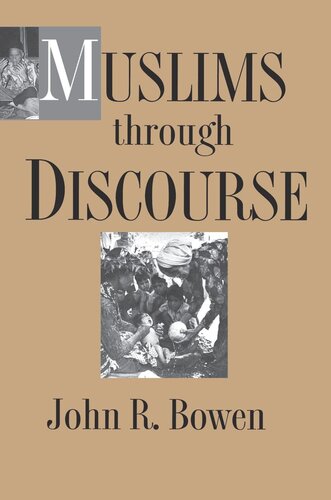

Most ebook files are in PDF format, so you can easily read them using various software such as Foxit Reader or directly on the Google Chrome browser.
Some ebook files are released by publishers in other formats such as .awz, .mobi, .epub, .fb2, etc. You may need to install specific software to read these formats on mobile/PC, such as Calibre.
Please read the tutorial at this link: https://ebookbell.com/faq
We offer FREE conversion to the popular formats you request; however, this may take some time. Therefore, right after payment, please email us, and we will try to provide the service as quickly as possible.
For some exceptional file formats or broken links (if any), please refrain from opening any disputes. Instead, email us first, and we will try to assist within a maximum of 6 hours.
EbookBell Team

4.3
98 reviewsIn this rich account of a Muslim society in highland Sumatra, Indonesia, John Bowen describes how men and women debate among themselves ideas of what Islam is and should be--as it pertains to all areas of their lives, from work to worship. Whereas many previous anthropological studies have concentrated on the purely local aspects of culture, this book captures and analyzes the tension between the local and universal in everyday life. Current religious differences among the Gayo stem from debates between "traditionalist" and "modernist" scholars that began in the 1930s, and reveal themselves in the ways Gayo discuss and perform worship, sacrifice, healing, and rites of birth and death, all within an Islamic framework.
Bowen considers the power these debates accord to language, especially in arguments over spells, rites of farming, hunting, and healing. Moreover, he traces in these debates a general conception of transacting with spirits that has shaped Gayo practices of sacrifice, worship, and aiding the dead. Bowen concludes by examining the development of competing religious ideas in the highlands, the alternative ritual forms and ideas they have pro-mulgated, and the implications of this phenomenon for the emergence of an Islamic public sphere.